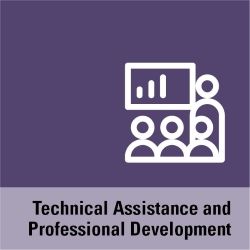Technical Assistance and Professional Development
Targeted technical assistance and professional development are directly connected to the State Performance Plan/Annual Performance Report and can vary from Universal to Direct support and intervention, depending on an analysis of each Local Education Agency's needs.
